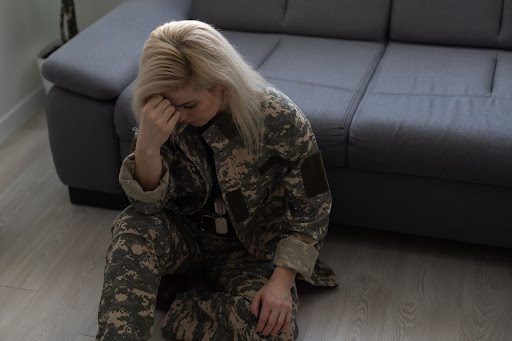Military service demands a considerable commitment to activities beyond what many in the general population experience. Lengthy separations from family and exposure to trauma and combat scenarios are common expectations that can contribute to the odds of developing depression in the military. Statistics reveal a significantly higher risk, five times higher during any given 30-day window than for the general population. This remarkable research finding underscores the importance of adequate identification and treatment of depressive disorders within the military population.
Read on to learn about the unique aspects of depression within the context of military culture. Then explore depression treatment options tailored to the military population.

Depression is a condition where individuals experience a low mood, negative thoughts, and loss of interest in enjoyable activities. After at least two weeks of these symptoms, individuals cannot function as they usually do. Unfortunately, individuals in the military are more vulnerable to developing depression than the civilian population due to unique aspects of military service.
Depression can have a complex relationship with military service, both as a pre-existing condition, and as the possible result of serving in the army. Having a previously diagnosed mental health condition such as depression can actually be a disqualifying factor for service in the United States military, though individuals may be considered on a case-by-case basis.
Additionally, participation in active military duty is a known risk factor for developing depression, post-traumatic stress disorder (PTSD), and other mental health disorders. As a result, once individuals are accepted into service, maintaining mental health in the military is a challenging priority. Depression is highly correlated with individuals on deployment, especially when exposed to combat. Yet soldiers operate under high performance expectations in stressful environments and may press forward with their duties despite exhibiting symptoms of depression. These and other factors present unique challenges to assessing and treating depression within the context of military service.
Much like civilians, many members of the military refrain from seeking treatment for their depression, for a variety of reasons: some individuals fail to recognize symptoms, while others worry that the stigma of being depressed may create the perception of weakness. Military culture is predominantly defined by the appearance of strength and resilience, making the stigma around seeking mental health support even more significant than in non-military settings. This can be especially difficult with expectations of bravery in dangerous conditions.
Additionally, symptom presentation can be challenging to identify and diagnose, often leading to mis- or underdiagnosed depression. In the army, for example, one study noted that depressed soldiers appeared more aggressive, self-critical, angry, overly involved with work, and socially withdrawn than civilians with depression.
Depression often co-occurs with PTSD, adding complexity to the treatment and recovery process. Symptoms of both disorders tend to improve or worsen in connection with each other, with many recovering quickly from both and one-fourth of individuals reporting chronically high symptom levels over time.
The suicide rate among military veterans is 50% higher than that of the general, civilian population, making suicide risk detection among veterans crucial. While commonly used screening tools are not particularly accurate for predicting suicidal risk, their use can prompt individuals to discuss their depression and any potential suicidality more deeply.
Some military service members present with depression-like symptoms representing a temporary emotional adjustment reaction to military life. Symptoms can be addressed with additional social support and modifications to the environment during the adjustment period. No medication or formal treatment is usually needed, though individuals with adjustment issues should be observed for signs of clinical depression and other mental health conditions.
Military service members who experience trauma while deployed have an increased chance of developing clinical depression. With each deployment, additional stressors and lingering effects of previous deployments increase the risk. Children of deployed members are also at greater risk of depression due to distress from long-term parental separation.
Mental health disorders significantly burden military personnel, impacting performance and endurance for activities ranging from daily duties to deployment. Individuals with more mental health symptoms also create more economical costs for governments providing care, indicating that high depression symptomatology increases the likelihood of seeing a psychological professional or a general physician for care. Because of these factors, military entities have the motivation to prioritize early screening and treatment to minimize the occurrence, duration, and severity of depressive disorders.
Because of the unique nature of the military population, the most effective depression treatment approaches are an adaptation of best practice standards within the context of military culture. Also, the military’s strong organizational structure and the need for an efficient and effective workforce provide additional momentum for delivering high-quality mental health services. Research has uncovered several relevant factors for improved outcomes and engagement in treatment services.
Because of the unique needs and aspects of military culture, commonly recommended depression treatments have been adapted to improve outcomes.

Depression in the military is a significant concern, impacted by stigma and distressing circumstances that can accompany military service. While those who serve are at an increased risk of developing depression, military health services strongly promote recognition and treatment of depressive disorders. Continued dedication to early detection, support, and widely available treatment options can help those coping with depression throughout their service commitment.